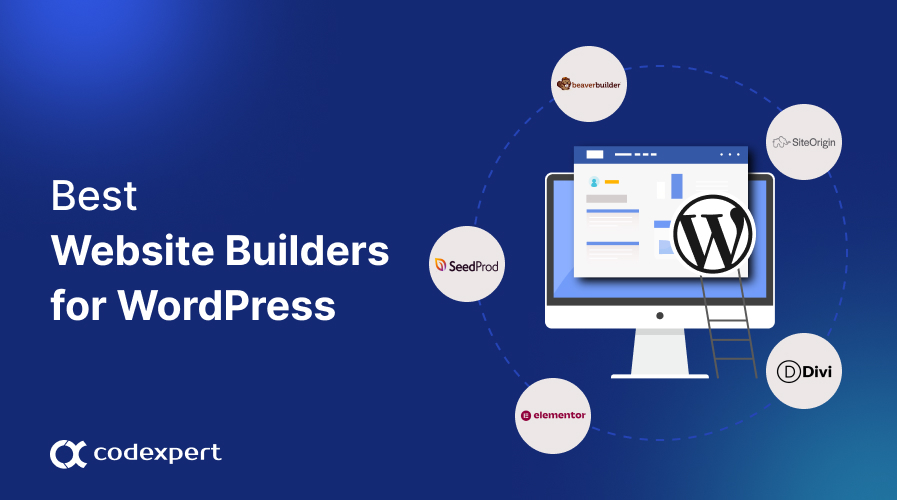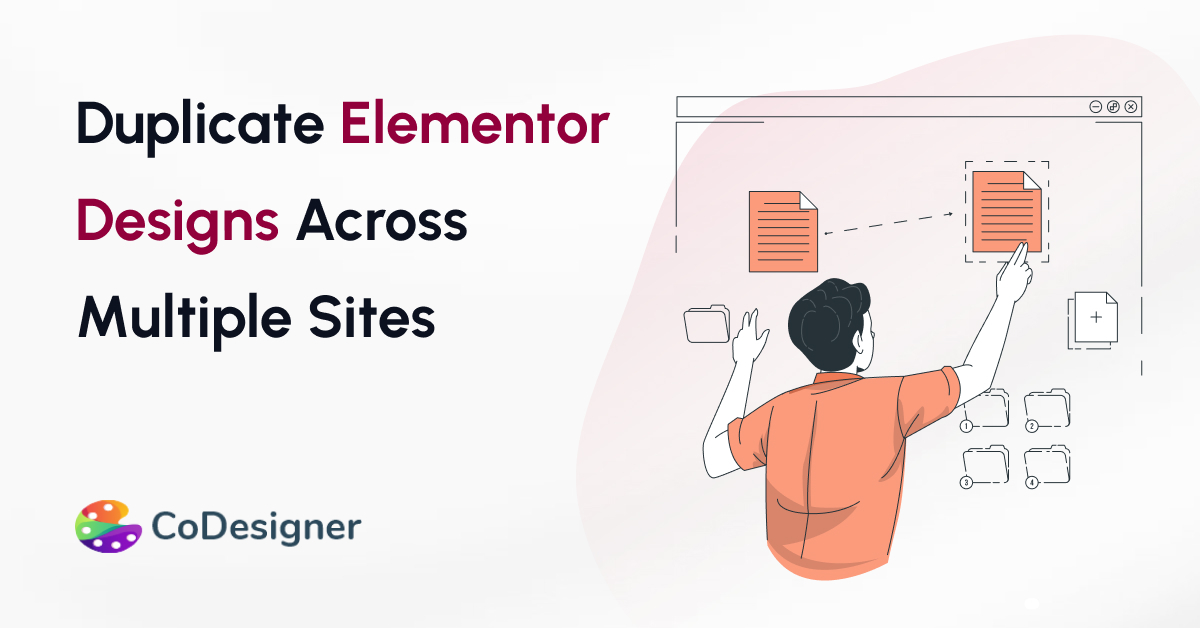Gutenberg vs Elementor: Choosing the Best Page Builder

Page builders make website creation and customization much easier in WordPress. With all their dynamic features, anyone can be a website wizard in WordPress. Among all the WordPress Page Builders available, Gutenberg and Elementor are always two leading options.
Whenever you are in a dilemma about choosing the right page builder to make your website catchy, you must think about these two. But choosing the right one for making a stand-out website is not easy when both page builders come with unique features and advantages of their own. A little help in the process can make it easy in this battle of Gutenberg vs Elementor. After a comprehensive discussion on both of these page builders, you will unleash an idea of which page builder will make your website stand out.
Understanding Gutenberg and Elementor Page Builders
Gutenberg
Gutenberg is the standard block editor for WordPress. The current version was launched in 2018 as a proxy for the classic editor. Although you can still install the classic editor, Gutenberg has come out as the cult favorite for its versatility and user-friendly interface.
The new system from Gutenberg is much easier. This page builder for WordPress was created in response to the growing demand for third-party page builders. Although there are numerous third parties available to this day, nothing can beat the aura of Gutenberg.
Gutenberg has features that are both user-friendly and handy at the same time. With its drag-and-drop option, you can easily edit the blocks in your preferred way. Gutenberg comes with extensive features that allow integration with third-party services and bring flexibility to content editing. Some examples of Gutenberg block editors are:
- Headings
- Paragraph
- Image
- Table
- Gallery
- Buttons
- Calendar
- Custom HTML
Individual blocks have editing options, and Gutenberg has quick panels for powerful control over documents. Most WordPress themes work smoothly with Gutenberg. This gives you flexibility and versatility in your editing.
Elementor
Among all the third-party WordPress page builders, Elelmentor stands out because of its functionality and user-friendly interface. Elementor was launched in 2016 and gained popularity over every other page builder in a very short time. No other third-party WordPress page builders can compete with Elementors Popularity.
Since Elelmentor is not a page builder for WordPress, you need to download the plugin as a free or paid version. It is also believed Elelemntor is the predator that led to the evolution of Gutenberg in place of WordPress Classic Editor.
Elementor has a drag-and-drop option like Gutenberg, but it is more versatile. Instead of editor blocks, Elelementor has widgets. They boast about 100+ widgets. A few examples of those widgets are:
- Heading
- Text Editor
- Image
- Toggle
- Progress Bar
Elementor is one of the most vibrant page builders on WordPress. This plugin has a huge community base of users and developers. This not only has a block editor but also has landing page editor tools, marketing tools, and website-building tools.
Gutenberg vs Elementor
With the detailed comparison of Gutenberg and Elelemntor, you will be able to identify the best one. Here, every difference between these two-page builders will come out and showcase the best of them.
Key Features
There are several differences between the key features of Gutenberg and Elementor. Although both of these page builders have drag-and-drop options, they are very different from each other.
Drag and Drop: The Gutenberg drag-and-drop option is very straightforward and does not have any lags. You can find the options very easily when you start editing a post. Block editing comes forward pretty easily for customization.
Although you can easily access the options, dragging and dropping takes a little more precision in Gutenberg. To customize posts, you need to select a block first. Then click and hold on the drag icon there. This process can be a little hassle for users sometimes.
On the other hand, the Elementor drag-and-drop option does not require any of that. You can drag any function of the Elementor anywhere of your choice. You can move the content blocks very easily with Elementor. There is no need to create or select any blocks for dragging things.

HTML Code: When it comes to coding, both Elelemntor and Gutenberg have options for that. You can find the code editor in Gutenberg very easily. Where you can add HTML anchors and any additional custom CSS of your choice. In Elementor, you can find the option for many other streamlined widgets in the widget settings. Here, you can add HTML anchors, attributes, and custom CSS.
Templates: are another key feature for any WordPress page builder. Which allows users to build websites in a blazing-fast manner. When it comes down to Gutensberg and Elelmentor page builders, we can see a major difference.
Gutenberg has a few templates for customization and fast website building. Gutenberg’s pattern tab only includes helpful section templates, which are not that helpful. Although you can use third-party plugins like Gutentor or Otter Blocks. But this does not serve the purpose of Gutenberg.
On the other hand, Elementor is stacked with tons of templates. Although you need a premium subscription to access all the templates, this is very affordable and much better than Gutenberg.
User Interface
To decide on the best WordPress page builder, we must consider user interface and user-friendliness. Both Gutenberg and Elementor have a user-friendly interface.
On one side, Gutenberg seamlessly integrates with WordPress. It provides a similar environment for the user to navigate seamlessly. Since Gutenberg seamlessly integrates with all the WordPress themes, user gets a smooth editorial experience.
On the other side, Elementor is a powerful page builder that works as a standalone application for WordPress. Although you need to learn a different interface, it all seems to be worth it because of the functionality of Elementor. It is much more user-friendly because you get everything in one place to get the full experience of a page builder.
Anyone can use Elementor with ease, even individuals with zero experience. Different professional features are also available for experienced users.
Overall, both page builders are easy to use, but Elementor seems to win the race. Gutenberg has a similar interface for users and is straightforward, though Elementor comes with a unique intuitive interface. Elementor can be used for any professional use by itself, whereas Gutenberg might need support with the interface from similar plugins.
Customization Option
Both WordPress page builders have different approaches to designing. Gutenberg goes for a simpler approach to designing and customization flexibility. Anyone can edit and customize within the blocks but in limited amounts. You get to experience very straight-forward customization.
With Gutenberg, you can choose to move the blocks around for a customized look and choose from the limited theme library. You can have restricted editing experience because of those limited resources. Although it can be great for beginners, editing a full-blown website is not a good idea.

In Elementor, you get to experience a wide customization experience. Your resources are not limited to blocks; rather, you can choose to create blocks anywhere of your choice just by dragging and dropping.
With the extended theme, widgets, and elements, you can have a great experience. The flexibility of Elementor empowers your creative ideas. You can choose to customize from the pre-designed pages or customize each and every sector as per your choice. It gives customization flexibility in other plugin-built websites like Woocommerce. Elementor is great for anyone from the beginner level to experienced users for customizing their pages and websites. You can get a smooth experience of website customization with different Elementor customizers.
Although Gutenberg has a simpler approach to customization and design, it does not really help you stand out in this competitive age of websites. Where elements give you the total freedom to bring out your inner creativity and inspire new ideas.
Performance
For a website, performance is the most important thing. When it comes down to performance, we can identify some major differences between these two-page builders.
Gutenberg is a page builder that has simpler HTML and code and tends to load faster because of the block-based approach. Being a page builder that has been directly made through WordPress gives it an extra edge in performance. By using a well-optimized theme, Gutenberg can really provide a super fast-loading page.
On the other hand, Elelmentor is a third-party page builder that provides advanced customization choices. Which can add complexity to your website, leading to a little increased loading time. Elementor provides a visually appealing experience to users but lacks a little performance at times. Because of all the customization, the complexity of your website gets more complex.

Performance can decrease as you use more widgets, a highly optimized theme, or other elements. If you want to make your website visually appealing with Elelemntor Page Builder, you need to use a light theme and fewer elements. To increase performance and website speed, optimize images, use a catch system, use only necessary elements, and opt for other strategies.
Gutenberg is very lightweight and does not affect your website’s performance or speed. Being a third-party plugin for WordPress Elementor, it is not lightweight and can lag a little in performance. This depends on various factors, from the choice of themes to the number of elements you are using and the way you optimize your website speed.
Integration Capability
Both of these page builders have unique integration capabilities. They have their own advantages and disadvantages.
Gutenberg integrates very well with all kinds of WordPress themes and plugins. Being a built-in page builder for WordPress, Gutenberg does not collide with or slow any of the plugins, themes, or features. Gutenberg allows you compatibility and allows you to have a website free from any kind of problem. It ensures your website works properly and is compatible with WordPress in every way.
On the other hand, elementor is a website that has unique features and is enriched with high functionalities. Because of the complex layers of functionality, Elementor might have some issues when used with a highly-performing theme or feature. However, Elementor provides its own range of themes that do not have any complexions. With those themes, you can add any pre-made ones or edit every part as you wish.
Price
Price range is a big factor in deciding the best page builder for your website.
Gutenberg is a built-in page builder that does not cost anything in your lifetime. But if you want to edit in an advanced manner, you would need an added plugin. Those plugins can cost you anywhere from $50 to $150.

As for Elementor, you can have a free version of this plugin for basic editing. For advanced customization experience, switch to Elementor Pro which costs around $14.99 to $59.99.
In Summary,
| Gutenberg | Elementor |
| Gutenberg has simplified key features and editing tools, that work in blocks. | Elementor has basic to advanced features that can be a little complex but still is friendly to all. |
| Gutenberg provides a seamless user interface by providing a similar environment as WordPress. There is no need for learning and adapting to a new interface for that. | As for Elementor, you need to learn a new interface, and might feel different than the usual WordPress environment. However, this is a standalone plugin that is packed with features. |
| Customization in Gutenberg is quite limited because of its simplification and limited built-in themes. | Elementor is all about customization. With the enlarged number of themes and widgets, you can customize any posts and websites with freedom. |
| As a built-in page builder, Gutenberg provides more seamless performance. It does not collide with any theme and provides increased speed because of its lightweightness. | Elemetor is a third-party plugin and is packed with features. Which causes it to be code-heavy and lag a little in the process. It works great with lightweight themes or its own built-in themes. |
| Gutenberg can integrate with all kinds of WordPress themes, plugins, and elements without any problems or lags. | Because of the complex layers of Elementor, we must be a little cautious about choosing highly performing themes and functionalities. |
| Gutenberg is completely free on its own. Some plugins that can help with its functionality are paid, costing $50–$150. | Elementor also has a free version that works great for beginner-level editing and customization. Its pro version costs around $59 to $199. |
Choosing the Best One for Your Website
Choosing the best one that will make your website stand out depends on your preferences. Both of these page builders have different and unique features to help you with the customization and editorial experiences.
Gutenberg is a built-in WordPress page builder that will not cost you anything to have a simplified editorial experience. With the basic and necessary customization tools, you can create a great structure for your website. With the help of some other plugin, you can make your website really stand out in the crowd.
Elementor is a thyroid party page builder that consists of a free and paid version. With the help of this page builder, you can edit and customize each part of your website. With few issues with the compatibility issues of themes, this page builder is completely packed with features. This does not need any additional plugins rather it is self-sufficient in every way. Although Elementor has various advanced features, it is still kept to be very user-friendly. Anyone can build a unique website from the ready themes or add their own touch.

Choose the one that you think meets your own requirements, which eventually will make your website stand out. As per our personal preference, Elemetor is sufficient in every way. The compatibility issues do not seem to be that complex when used wisely. Also, Elementor provides a visually appealing website and customization experience that stands out for the website. Which is why Elementor is in the top tier than Gutenberg for us.
Final Thoughts
Gutenberg and Elementor both page builders are great in their own unique way. Both of these offer unique functionality which can be great for different user groups. When you are trying to add additional spice to your website to make it stand out both the plugins can do wonders when used the right way.
However, to understand which one to choose, you must understand your needs and the elements you want your website to have. Where Gutenberg offers you improved performance and compatibility with all WordPress themes, Elementor gives you a visually satisfying expert customization experience. Gutenberg is a little behind in the race to build extensive functionality, and Elementor has some shortcomings in compatibility. With all these kept in mind, go for the one that can serve you with all the necessary functionality and more.
FAQ
Can I Use Gutenberg And Elementor Together?
Yes, you can use both of them but not for editing the same post. The default editor Gutenberg can be on your website along with Elementor and can be used in time. But you can go with one of that editors for one particular post.
Are Gutenberg’s SEO Settings Better Than Elementor’s?
There are no extra advantages in SEO with the use of these plugins. You can use additional SEO Plugins for the benefit.
Subscribe to Our Newsletter
Get the latest WordPress tutorials, trends, and resources right in your inbox. No Spamming, Unsubscribe Anytime.

Thank you for subscribing to our newsletter!













